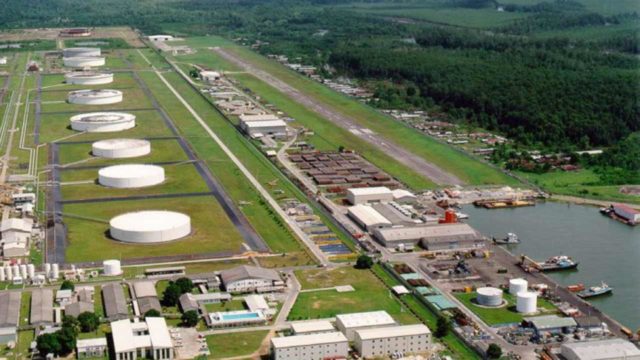Financial analysts at EFG Hermes Holdings have said the reason behind Nigeria’s falling reserves is still not straightforward considering limited transparency of reserves and balance of payments numbers.

Indeed, the analysts highlighted four main factors that dictate the disappointing movement of reserves. In its latest report, titled ‘More pressure on NGN; adjustment edging closer’, EFG Hermes Holdings noted that Nigeria has been exporting less oil in the past year given its commitment to OPEC+ production cuts.
The report stated that crude oil export volumes are down by 20 per cent on average in the year to June, reducing the upside from higher oil prices by a good margin.
Secondly, it stated that the country is losing about $350 to 450 million a month due to the resurgence of oil subsidies, shaving off close to 15 per cent of the country’s oil revenues.
The report noted that this is the double- edged sword of rising oil prices that sometimes is downplayed for oil exporters, adding that the government has blinked again in the face of reforms and has kept domestic fuel prices unchanged despite the significant rise in oil prices
Speaking at a virtual meeting to launch the report, Managing Director – Head of Macroeconomic Analysis, EFG Hermes Holdings, Mohamed Abu Basha, said the first two factors explain why reserve build-up would have been dented while the remaining two are real drivers of the lack of reserve build-up.
Basha said the impact of the subsidy is all the more acute this time around as Nigerian National Petroleum Corporation (NNPC) is solely importing fuel products after private importers were chopped off.
Indeed, NNPC announced in April that it will not be remitting funds to the federation account for May due to the rising cost of subsidising imported fuel products.
Besides, the report noted that Nigeria has been one of the exceptional countries where remittances have been negatively impacted by the pandemic.
Remittances have dropped 33 per cent in the 12 months starting second quarter of 2020. The report stated that the country has been losing an average of $2billion a quarter over the past year (up to first quarter 2021, the latest point at which data is available).
This, according to the report is clearly a considerable loss to the foreign exchange system and could, partially explain why reserves have not been picked up despite the rise in oil prices
Lastly, it noted that anecdotal evidence suggests the CBN’s FX reserves may have also been pressured by the maturing of some FX swaps, stating that there is hardly any official data about the size of outstanding swaps on the CBN’s balance sheet, hence it remains difficult to assess their real impact on reserves.
Meanwhile, the analyst disclosed that the recently approved Special Drawing Rights (SDR) allocation by the International Monetary Fund can stabilise exchange rate and drive down inflation in the country.
The IMF had last week Monday, approved a global SDR allocation of SDR 456 billion, which is equivalent to $650bn to boost global liquidity at a time when the world is grappling with the COVID-19 pandemic.
Head of Frontier Research at EFG Hermes, Kato Mukuru, said the new allocation is expected to drive the growth of Nigeria’s foreign reserves, adding that the expected positive developments were tied to interventions by the Central bank of Nigeria.
According to him, the additional reserves should be accompanied by foreign exchange harmonisation to attain the desired results.
On the new forex policy by the CBN, the Chief Executive Officer of the Frontier, Ali Khalpey, urged the apex bank to keep to its promise of transferring the forex allocations that were formerly for Bureau De Change operators to banks, to prevent forex scarcity.
“We maintain our view that an FX adjustment is on the way with the CBN likely utilising upcoming FX inflows to help deliver yet another round of Naira adjustment. We think last week’s decision will likely further feed into this adjustment.
“We are basically eyeing an upcoming $3 to 5bn Eurobond issuance – with the government finally receiving the Senate’s nod – as well as a $3bn injection from the SDR allocation to provide much-needed firepower to help fuel a new adjustment round for the Naira, he said.
Support InfoStride News' Credible Journalism: Only credible journalism can guarantee a fair, accountable and transparent society, including democracy and government. It involves a lot of efforts and money. We need your support. Click here to Donate